Lijiang bacon pork
Lijiang ribs chafing dish is one of the traditional cuisines of Lijiang in Yunnan. Many people do not know the origin of this dish. It is a third main dish of "three overlapping water" in the Naxi dish. Three water is the same as Naxi Manhan full banquet, only the most honored guests feast on this dish. According to legend, when Xu Xiake traveled to Lijiang, the Naxi chieftain used 108 "three overlapping water" to entertain him.
Lijiang ribs chafing dish is one of the traditional cuisines of Lijiang in Yunnan. Many people do not know the origin of this dish. It is a third main dish of "three overlapping water" in the Naxi dish. Three water is the same as Naxi Manhan full banquet, only the most honored guests feast on this dish. According to legend, when Xu Xiake traveled to Lijiang, the Naxi chieftain used 108 "three overlapping water" to entertain him.
Lijiang bacon and bone hotpot is a kind of pork ribs cured by soil, stewed in a casserole, and usually served with fresh vegetables: mint, leek root, tomato, celery, potato, wild mushroom, mushroom, Radix isatidis, noodles and so on. It is seasoned with local dipping water, fresh and rich, with fresh meat, but the more delicious it is. With local rice wine, the taste is self-evident. In Yunnan cuisine, it can be called Jiapin.
Lijiang bacon ribs can effectively blend meat flavor and bone flavor, so that the flavor factors after curing and drying can easily be distributed to the soup, and soup is an important part of the hot pot, so no matter what dishes are hot in the pot, the hot pot is melted with bacon ribs rich fragrance, which is fragrant and pure flavor.
Lijiang's unique climate and natural green environment give it the conditions for making high-quality ribs. The pickled Lijiang ribs should be selected with special local pork ribs. * with salt, chili, spices and other pickling, it can be dried in a cool, dry place for more than 10 days.
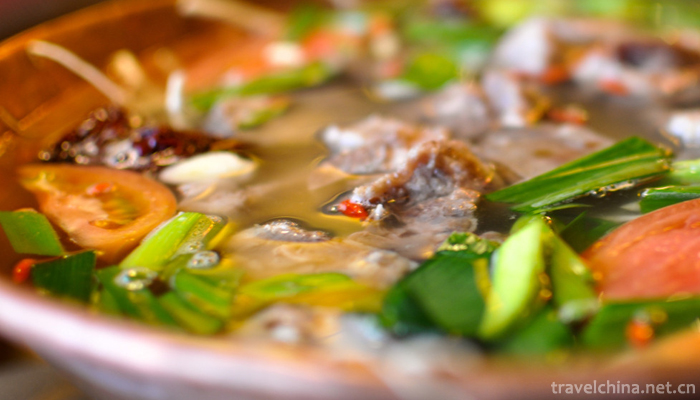
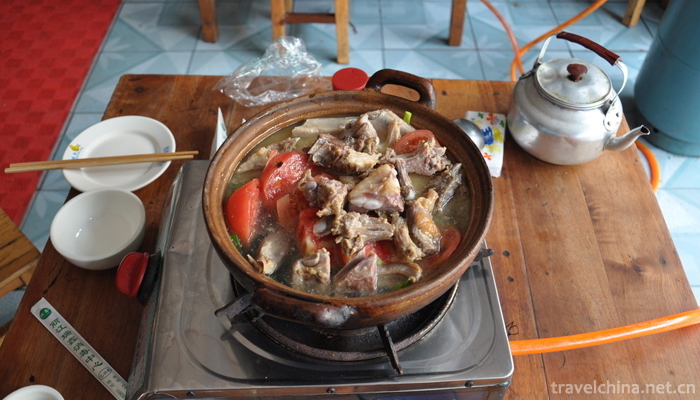
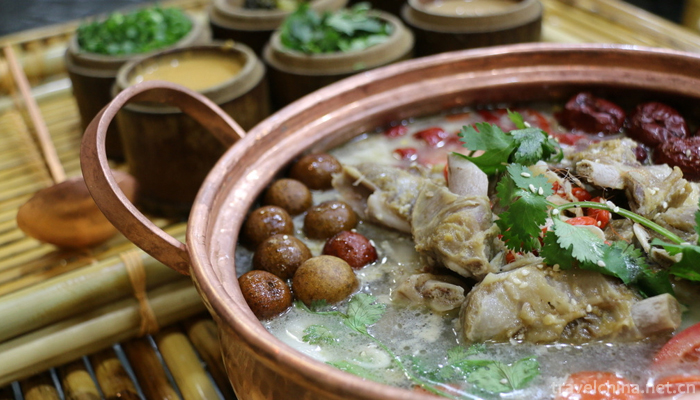
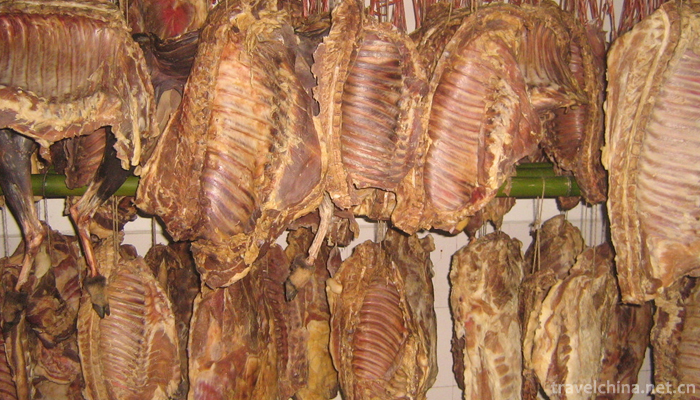
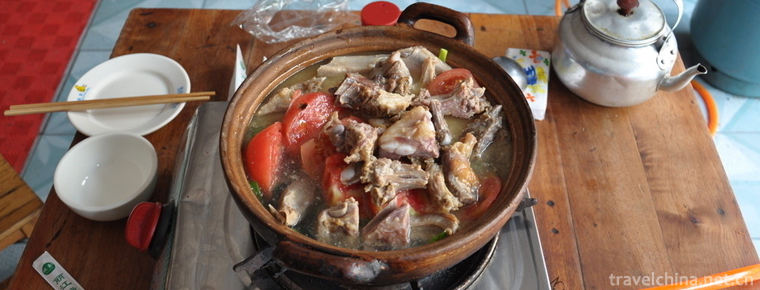
-
1.Green Lake Park
Cuihu Park is located at the foot of Luofeng Mountain in Kunming City
Time 2018-10-21 -
2.wunv mountain city
Wunu Mountain City is a national key cultural relic protection unit. It was built by Zhu Meng, the ancestor of Koguryo. The three gates of the city are narrow at the bottom of the wall
Time 2018-12-22 -
3.Central Radio and Television Tower
The Central Radio and Television Tower, now a national 4A scenic spot, is located on the west side of West Third Ring Road, Haidian District, Beijing. Near the Space Bridge, it faces beautiful Yuyuant
Time 2018-12-22 -
4.Songhua Lake Scenic Area
Songhua Lake Scenic Spot is a famous tourist attraction in Jilin Province. It is a national AAAA level scenic spot (AAAAA is being declared). Located in the southern suburb of Fengman District
Time 2019-02-13 -
5.Yasuaki
Anzhao is an ancient Tu dance. It's popular with mutual aid. When celebrating festivals, harvest celebrations and weddings, people gather in the courtyard or on the wheat threshing ground to dance the
Time 2019-04-02 -
6.Bai opera
After 1949, on the basis of blowing tunes, Bai folk opera "Dabenqu" tunes were further enriched and improved, renamed "Baiju". The Lyric forms are basically sung in Bai language an
Time 2019-04-03 -
7.Hua gu deng Flower drum lantern
Flower drum lantern, a traditional dance in Bengbu City, Fengtai County and Yingshang County, Anhui Province, is one of the national intangible cultural heritage.
Time 2019-05-04 -
8.Paper cut art
Chinese paper-cut is a kind of folk art that uses scissors or carving knives to cut patterns on paper, to decorate life or to cooperate with other folk activities. In China
Time 2019-05-05 -
9.Mulan Legend Hua Mulan Legend
Mulan legend is one of the Chinese folklores. Mulan legend began in Sui and Tang Dynasty. It is characterized by the spread of Chinese folk oral language in the early period, and then by the appearanc
Time 2019-06-06 -
10.Eighteen Butterflies
Eighteen butterflies is a local traditional dance form popular in the central part of Zhejiang Province (mainly in the area of Jinhua Yongkang). Twenty young women play the whole set of eighteen butte
Time 2019-06-15 -
11.How long does it take for Chengdu to get to the giant panda base
When you come to Chengdu, you must come and see the lovely giant panda. The nearest panda base to the city is the giant panda breeding research base. How long does it take from Chengdu to the giant panda base?
Time 2020-12-13 -
12.Mineral resources in Neijiang
Neijiang City is rich in mineral resources. Energy minerals mainly include coal, natural gas and oil shale; nonmetal and building materials minerals include limestone, sandstone, shale, refractory clay, bauxite, marble, river sand, gravel and ceramic clay, etc.;
Time 2020-12-16